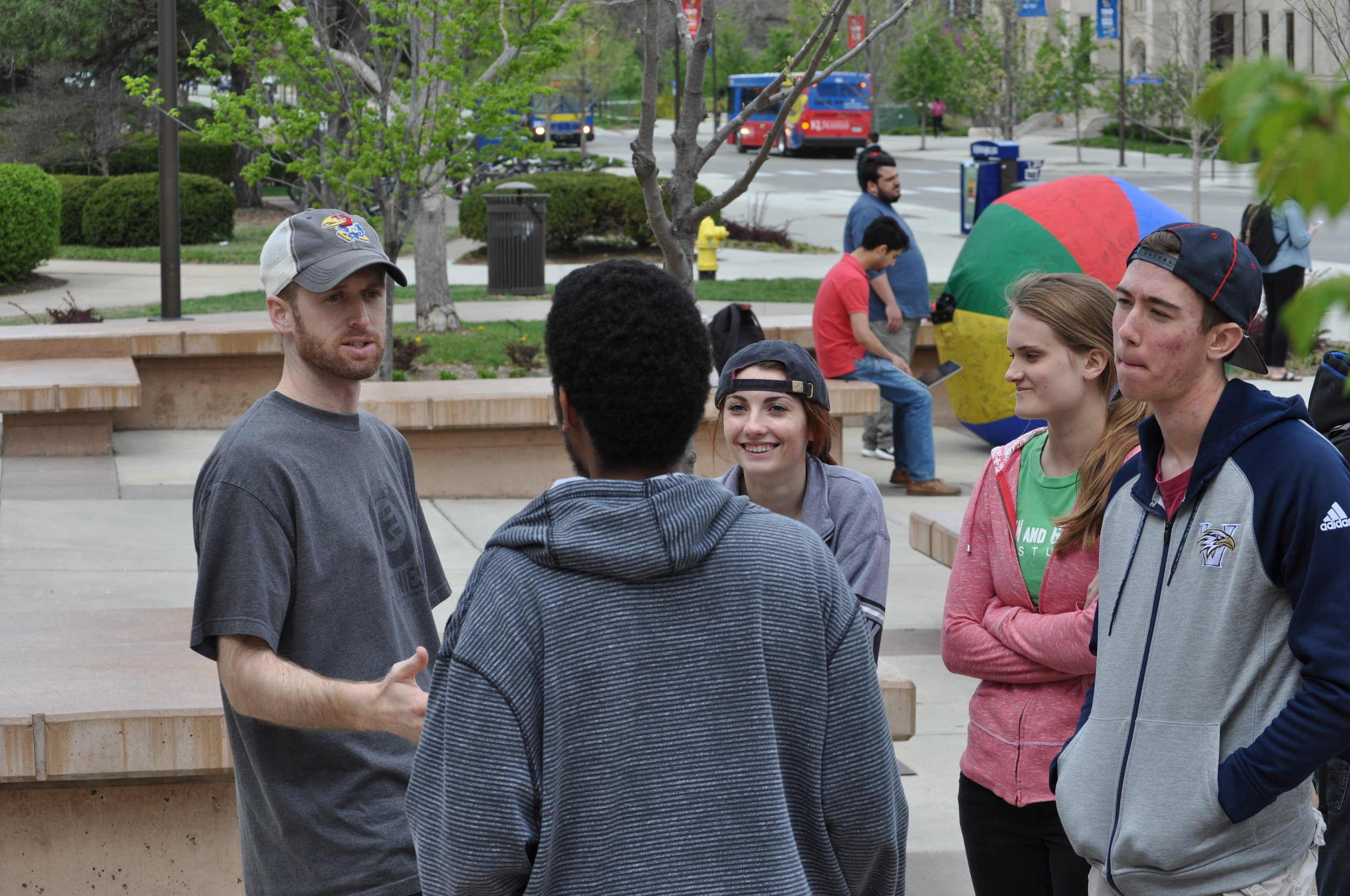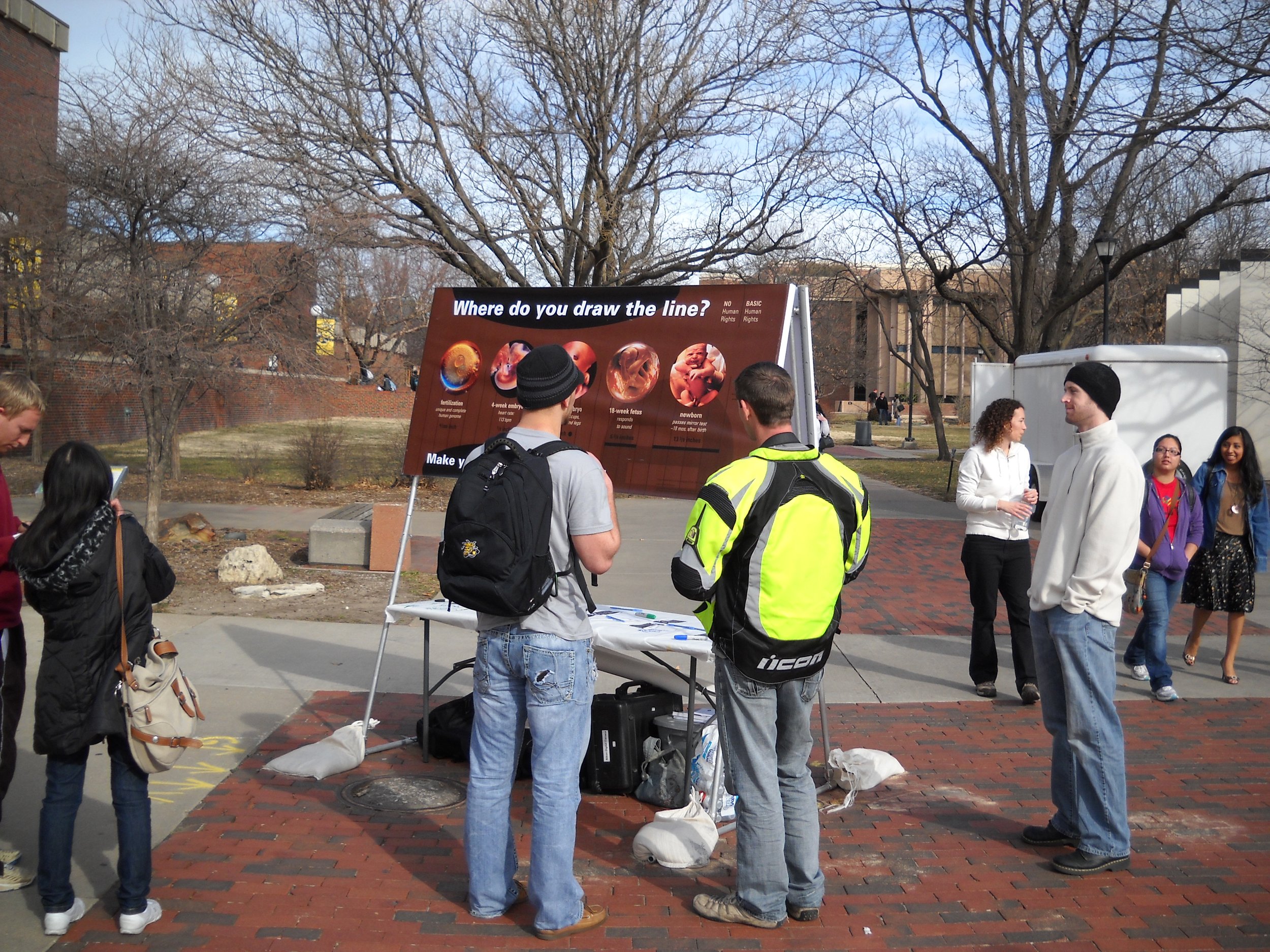Then we walked through the idea that, from fertilization, the unborn is not part of another organism, but is a whole organism with its own functional parts. I asked Will what his thoughts were on that, and he said, “You know, there’s nothing I can disagree with there either.” So we came to the end of walking through how we know the unborn is biologically human, and he didn’t have anything to refute.
“Okay, so we agree that the unborn is biologically human,” I said. “What does that mean with regard to abortion?” After that, I walked through the Equal Rights Argument, and he seemed to be very responsive to that line of reasoning. (Learn to defend the equal right to life of the unborn through real-life dialogue examples in our Equal Rights Argument Newsletter Collection.)
We had probably talked for about thirty minutes when Will looked at me and at Maya. “That is one of the most logical arguments I have heard for the pro-life position,” he said. “I am really going to have to continue processing this and thinking about this.”
When he walked away, Maya turned to me and said, “That was amazing!”
I was really excited because this seemed to be an answer to my prayers for Maya. That was one of the first outreach conversations she had witnessed, and it walked through the seminar material in a way that would make it make sense for her. It wasn’t a conversation about one of the more complicated topics that are sometimes raised at our events, such as “whether or not we know we exist” or “whether or not we can know anything at all.” It was actually one of the more basic conversations, in which the person with whom we spoke was able to follow pretty simple ideas and logic.
- Rebecca Hotovy, Training Specialist
Three students from a Catholic high school joined the JFA team at KU as mission trip participants from out of state. These young men were participants at the JFA seminar held just off campus and then came out to volunteer for the first full day of outreach at KU. After they helped with exhibit setup, our team started to create conversations with KU students. About an hour or two into the outreach, I noticed that these young men from my group were doing a good job of just observing JFA staff members’ conversations, which is what we had instructed them to do for the first portion of the day.
I was taking pictures, standing off to the side, when a KU student came up to two of the young men, Benjamin and Sean. They were standing next to the new art table by the Art of Life Exhibit at the time, listening to one of Becca Hotovy’s conversations. (See pictures of the art table created by JFA trainer Grace Fontenot, and other photos from the recent outreach at KU, in the JFA Photo Archive.) Right after the KU student came up to talk to them, Benjamin started interacting with him. The college student seemed to have an agenda, and he had a sort of steamrolling personality in the conversation. I was within earshot, but not close enough to be in the conversation, so I slowly inched my way closer to listen and be available if I was needed.
The KU student shared that he had grown up in a Christian community in a small, remote town. A 13-year-old girl in the town had been forced into an intimate, incestuous relationship by an older family member. He said the girl had ended up getting pregnant as a result, and that the family had shamed this young woman for what had happened even though she was the victim. The KU student ended up basically saying to the high schoolers, “What would you tell this woman who gets pregnant and wants an abortion?”
It was one of the hardest topics that ever gets brought up, and it was the first conversation in which these students had actively participated. I didn’t know how Benjamin would handle it, but he did a really good job of showing compassion for the rape victim, balancing the relational and intellectual challenges inherent in responding to the question of rape. (See “What about Rape?” in JFA's Interactive Guide to learn to meet both challenges and respond in a Christ-like way.) I thought that with just one seminar under his belt, he actually did very well at staying on the relational side, focusing on the horror of rape and showing genuine sympathy. He didn’t jump into intellectual argument mode, even though he was a very intellectually adept student. I did end up joining in the conversation at one point to help out somewhat, but he had done a really good job of focusing on the right approach at the right time.
- Paul Kulas, Director of Operations
















